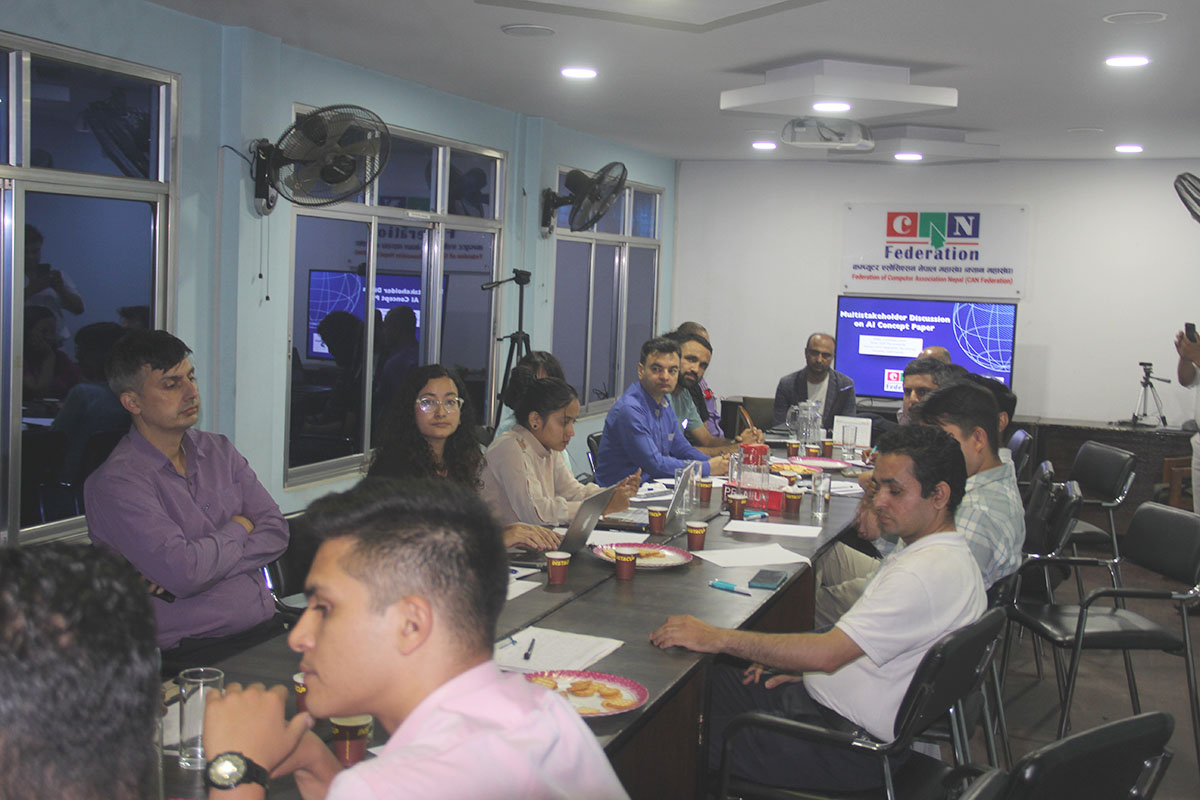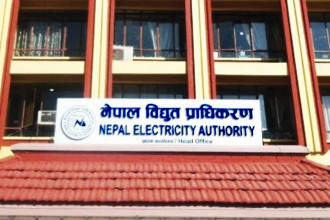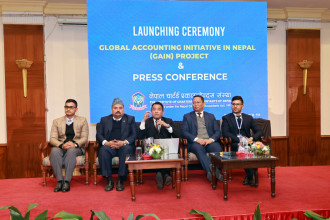
KATHMANDU: Federation of Computer Association Nepal (CAN Federation) held a discussion on Wednesday regarding the recently released 'Artificial Intelligence (AI) Concept Paper' by the government.
The event held in Kathmandu gathered stakeholders and experts from various sectors to deliberate on the concept paper. Participants welcomed the initiative but highlighted several key issues that were overlooked.
Attendees included individuals interested in AI usage, regulation, and management, such as academics, IT professionals, lawyers, service providers, and digital rights activists. Speakers emphasised the importance of AI regulation but cautioned against over-regulation.
"AI is a transformative force in education, capable of revolutionising how we teach and learn by personalising experiences and bridging gaps in access. For Nepal, integrating AI into the education system is not just an opportunity but a necessity as we strive for quality education for all. By embracing AI, we can empower our students to thrive in a future where technology and education are deeply intertwined, ensuring that no one is left behind in pursuing lifelong learning," said Prof Dr Subarna Shakya, President of the Center for Cyber Security Research and Innovation.
Bhojraj Ghimire from Nepal Open University pointed out that the paper lacks practical details and fails to address critical aspects such as data standardisation, sharing, cleansing, and privacy, which are essential for the development and deployment of AI technologies.
Similarly, Sanjina Chhetri from Digital Rights Nepal raised concerns about the lack of attention to data protection in the concept paper. She pointed out that the paper does not clearly define the roles of federal, provincial, and local governments in AI governance.
Former DIG of Nepal Police and Advisor of Information Security Response Team Nepal (npCert), Rajib Subba, warned that if the current discourse on AI is not properly guided, it could lead to confusion.
Prabesh Subedi, founder of Digital Media Foundation, stressed the need for a dedicated regulatory body for AI but opposed placing it under the Ministry of Communication and Information Technology (MoCIT), expressing concerns that such a move might infringe on the jurisdiction of other ministries and government bodies.
Other speakers, including Samir Kharel from Global College International, Umesh Raghubanshi from CAN Federation, and Nischal Regmi from Everest Engineering College, provided valuable insights. They emphasised the need for a more inclusive approach that recognises Nepal's cultural and linguistic diversity and the roles of provincial and local governments in AI governance.
To ensure the feedback is actionable, the CAN Federation has tasked Prof Sudan Jha from Kathmandu University's Department of Computer Science, Ganga Bhandari, Co-chair of the CAN Federation Women in ICT Committee, and Diksha Raut, involved in the World Association of Girl Guides and Girl Scouts’ Internet Safety Program, with preparing a report based on the discussions. This report will be submitted to the MoCIT, according to CAN Federation General Secretary Chiranjibi Adhikari, who is also the coordinator of the AI concept paper.
This initiative marks a step forward in shaping the future of AI in Nepal, ensuring alignment with global standards while addressing local needs and governance structures.
CAN Federation General Secretary Chiranjibi Adhikari stated that Nepal is swiftly adopting AI across key sectors. In agriculture, AI is revolutionising crop yield optimisation, aiding biodiversity conservation through ecosystem monitoring, and enhancing disaster management with AI-driven predictions and response strategies. In healthcare, AI is improving remote medical access and diagnostics, while in tourism, AI-powered tools are enhancing visitor experiences and preserving cultural heritage. He stressed that AI is shaping the future of the country.






